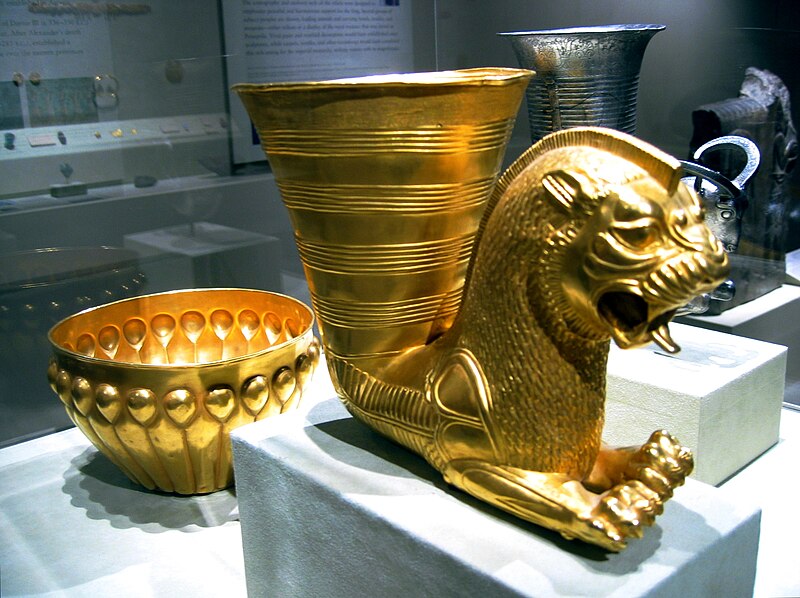File:Persia - Achaemenian Vessels.jpg

本预览的尺寸:800 × 598像素。 其他分辨率:320 × 239像素 | 640 × 478像素 | 1,024 × 765像素 | 1,280 × 956像素 | 2,260 × 1,688像素。
原始文件 (2,260 × 1,688像素,文件大小:1.23 MB,MIME类型:image/jpeg)
文件历史
点击某个日期/时间查看对应时刻的文件。
| 日期/时间 | 缩略图 | 大小 | 用户 | 备注 | |
|---|---|---|---|---|---|
| 当前 | 2006年7月12日 (三) 20:59 |  | 2,260 × 1,688(1.23 MB) | Makthorpe | {{flickr| |title=Achaemenian Vessels 5th century B.C. |description={{en|Original caption from photographer "Rosemaniakos" on Flickr: *'''Front:''' *Vessel terminating in the forepart of a fantastic leonine creature, Achaemenid; 5th century B.C. *Iran Gol |
文件用途
以下2个页面使用本文件:
全域文件用途
以下其他wiki使用此文件:
- ar.wikipedia.org上的用途
- azb.wikipedia.org上的用途
- az.wikipedia.org上的用途
- bs.wikipedia.org上的用途
- de.wikipedia.org上的用途
- en.wikipedia.org上的用途
- es.wikipedia.org上的用途
- fa.wikipedia.org上的用途
- fr.wikipedia.org上的用途
- hr.wikipedia.org上的用途
- hu.wikipedia.org上的用途
- mzn.wikipedia.org上的用途
- nl.wikipedia.org上的用途
- ru.wikipedia.org上的用途
- sh.wikipedia.org上的用途
- sk.wikipedia.org上的用途
- sl.wikipedia.org上的用途
- sr.wikipedia.org上的用途
- ta.wikipedia.org上的用途
- tr.wikipedia.org上的用途
- tt.wikipedia.org上的用途
- uk.wikipedia.org上的用途
